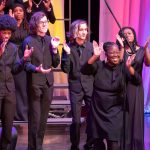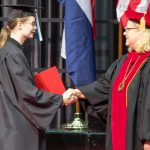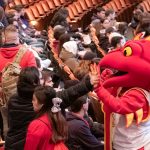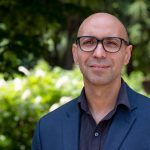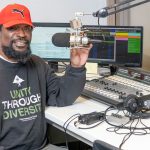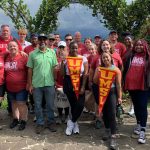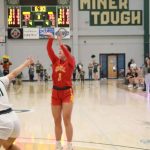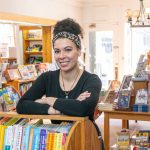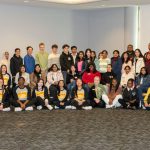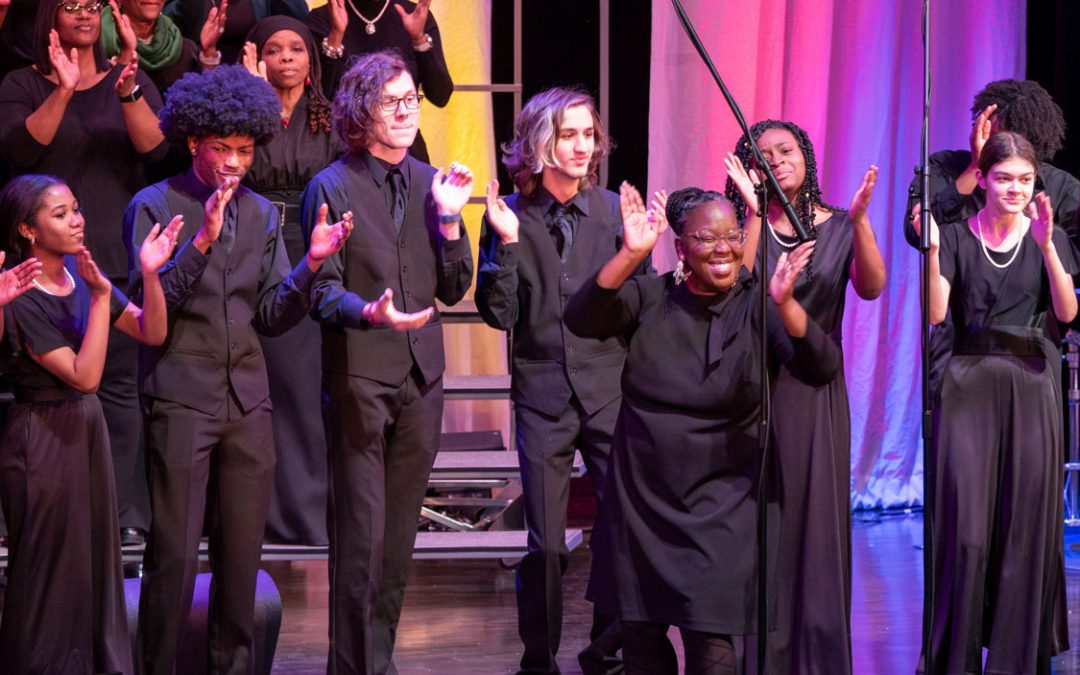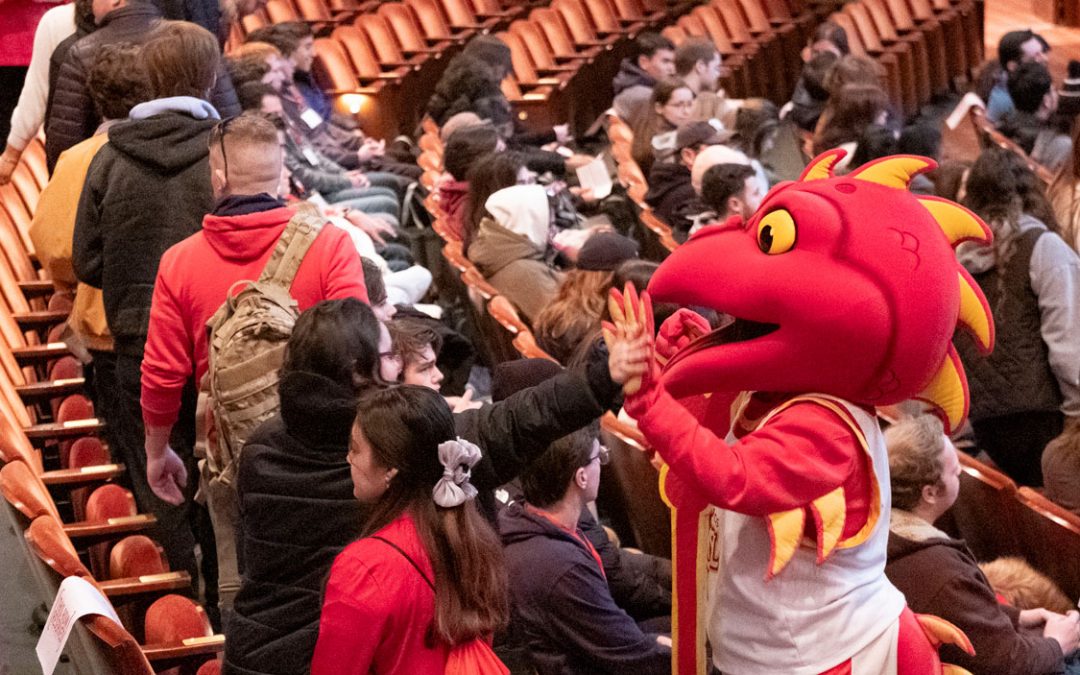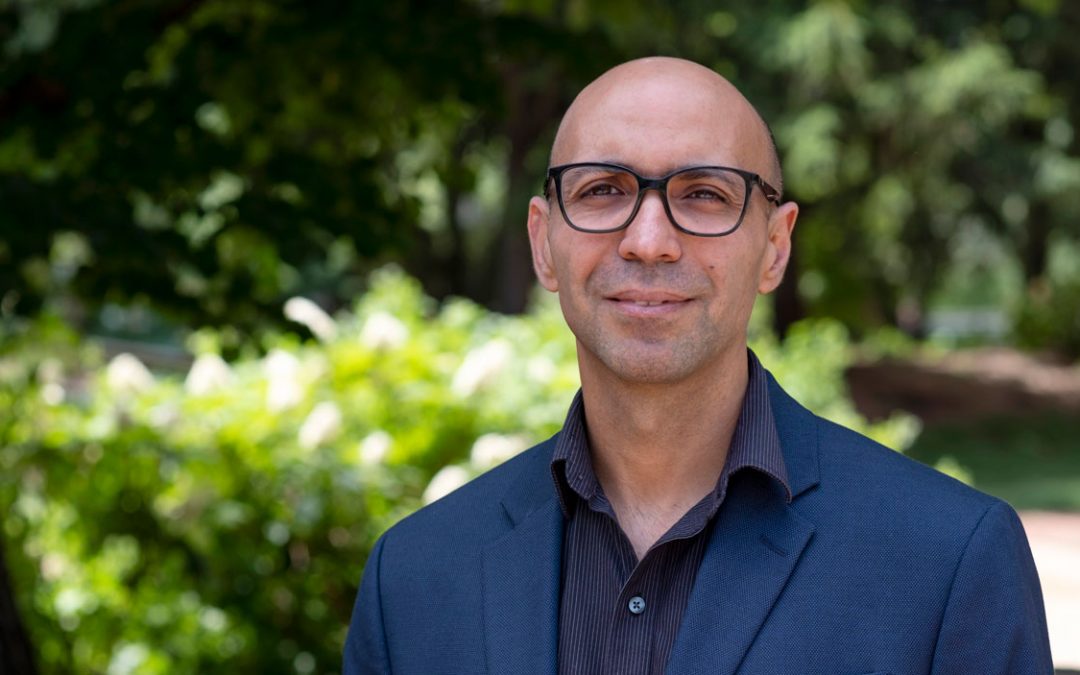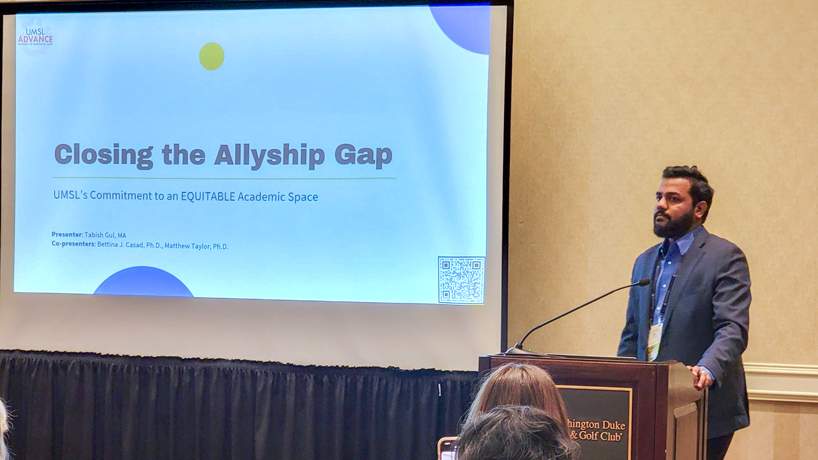
Tabish Gul, a third-year behavioral neuroscience PhD student and member of the NSF ADVANCE team, presents his talk “Closing the Allyship Gap,” which examined the gaps between allies’ intent and their real-world actions, at the Equity in STEM Community Convening in Durham, North Carolina. (Photo courtesy of Cynthia Dupureur)
Since 2019, the Equity in STEM Community Convening has served as a meeting for National Science Foundation ADVANCE grantees to engage agents of change within and beyond the NSF ADVANCE community.
In May, two graduate assistants on the University of Missouri–St. Louis’ ADVANCE grant team had the opportunity to attend this year’s conference in Durham, North Carolina, and present their research.
Tabish Gul, a third-year behavioral neuroscience PhD student, shared research on closing allyship gaps in academia among faculty members, while Kristen Woodhall, a behavioral neuroscience master’s graduate, displayed a poster about her research on gender disparities related to applications for COVID-19 relief research supplements.
The three-day conference was well attended, and Woodhall said there was a lot of traffic through the hall where posters were displayed, offering her and Gul opportunities to connect with likeminded scientists from across the nation.
“I had many meaningful conversations with people,” Gul said. “There are some potential opportunities to connect with those people in the future, as well as some professors who attended, who shared the same experiences as we did and the same challenges as we did while conducting these programs.”
Chancellor Kristin Sobolik is the principal investigator on the ADVANCE grant. The co-PIs are Alice Hall, associate provost for faculty affairs; Tanisha Stevens, vice chancellor for diversity, equity, and inclusion; Matthew Taylor, associate dean for faculty affairs in the College of Arts and Sciences; and Cynthia Dupureur, professor in the Department of Chemistry and Biochemistry. Initially, the late Bettina Casad, former associate professor and director of the Behavioral Neuroscience Program, served as co-PI before her passing in March.
“Kristen and Tabish have been valued and integral members of the ADVANCE team, providing critical support to many of our efforts,” Dupureur said. “It’s gratifying to see how this work has also provided them with opportunities to develop as professionals. We’re so proud of them.”
Casad was a mentor to Gul and recruited him and Woodhall to serve as graduate assistants on the project.
“I signed on, and it’s been a great ride,” Gul said. “The ADVANCE grant provided us a lot of opportunities to grow. This is the second conference that we have been to in the last 12 to 14 months, and this time, we actually got to present.”
Casad’s interdisciplinary research focused on stereotyping, prejudice and discrimination and understanding the mechanisms linking experiences of stigma to psychological well-being, educational and career achievements and physical health. She had a particular interest in barriers for women and minorities in STEM disciplines.
The ADVANCE grant is tied closely to her work, as well as the research interests of Gul and Woodhall. Like his late mentor, Gul has focused on gender disparities in STEM fields and in ADHD diagnoses among children. Woodhall’s work is in evolutionary psychology, and she has studied how social media plays into evolutionary mismatch and how it affects users’ self-esteem, life satisfaction and envy.
The ADVANCE program aims to help universities striving for equity in STEM fields. It helps Universities identify unnecessary barriers to success in these fields, particularly ones that disproportionately affect members of social groups that have historically been underrepresented. The goal is to help every individual feel that they can be a part of the STEM workforce and pursue the things they’re passionate about. When a broader range of talented scholars succeeds, it strengthens the field as a whole.
At the conference, Gul touched on those ideas during his talk, “Closing the Allyship Gap.” Allyship doesn’t have a single definition, but broadly, it refers to the practice of people amplifying and advocating with others, in particular those of different and less represented groups than themselves. Gul’s presentation examined the gaps between allies’ intent and their real-world actions, as well as the perception among underrepresented communities they intended to aid.
The research was based on allyship trainings and follow-up assessments Casad conducted on UMSL’s campus. Matching questionnaires were given to allies who completed the training and members of underrepresented communities. What Gul found was a gap in the allies’ perception of the adequacy of their actions.
“The allies thought they were doing enough, but when we look at the data from the underrepresented colleagues, we see that they do not rate their colleagues as doing enough,” he said.
To address that gap, training for equity advisors, who serve on search committees, included discussions and case scenarios to develop allyship skills and strategies. Data collected after those sessions showed a greater awareness of allyship gap.
Woodhall presented a poster that detailed an interesting finding from an audit of a COVID-19 relief research supplement. The 2021 University-funded program provided faculty members funding to support productivity during the onset of the pandemic.
She and Gul were both appreciative of the opportunity to travel and share their work.
“I’d say it was genuinely my favorite conference I’ve gone to,” Woodhall said. “It was a lot of fun. I loved the people at the conference. I loved the sessions we had. I loved the keynote speaker. There was a lot of great information that was directly relevant to what we were doing.”


